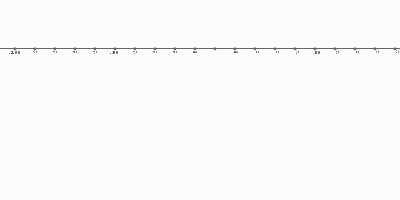Portuguese Empire (jan 1, 1415 – jan 1, 1999)
Description:
1419 Lately the Portuguese have been building latine-rigged ships, which can tack into the wind. They are are exploring waters off the coast of northern Africa, and they lay claim to the island of Madiera.1420 The Portuguese are fighting inhabitants of the Canary Islands, south of Madeira.
1434 Portuguese start sailing past Cape Bojador, beyond which had been considered a "Sea of Darkness" from which no European had returned.
1441 In one of their caravels, the Portuguese transport around 200 slaves from Africa to Portugal.
1448 On a small island known as Arguin (Arguim), rougly 700 kilometers south of Cape Bojador, the Portuguese build a castle and establish the first European trading post in Africa.
1479 After four years of war, Spain accepts monopoly trade for Portugal along Africa's Atlantic coast and Portugal acknowledges Spain's rights in the Canary Islands.
1482 Portuguese have founded new trading settlements on Africa's "Gold Coast." They are trading ironware, firearms, textiles and food for gold, ivory, food and slaves.
1500 Portugal settles the islands of Sao Tome and Principe off the Atlantic coast of Africa.
1510 Portuguese ships are heavily armed with cannon and dominate the Indian Ocean. Indian ships are smaller and held together with coconut fiber ropes, instead of iron nails. Portuguese Catholics establish a presence at the port at Goa on India's western coast, a point from which Muslims had been debarking for pilgrimages to Arabia. Goa begins to serve as Portugal's port and capital town in Asia. India these days has a population of around 105 million – about one-twelfth the number of people in Pakistan and India today.
1514 Portuguese traders reach what today is Indonesia, then the centre of the spice production
1532 The Portuguese begin to ship slaves to Brazil, slaves they have paid for in Africa with manufactured goods.
1562 The English seaman John Hawkins raids a Portuguese ship taking slaves to Brazil. He begins England's participation in the slave trade by exchanging the slaves in Hispaniola for ginger, pearls and sugar, a transaction that brings him a huge profit that interests other Englishmen.
1602 Shah Abbas of Iran drives the Portuguese from Bahrain.
1641 Since the entry rise of the British, French and Dutch maritime navies, the Portuguese have not been keeping up with the Dutch as traders, technologically or militarily. Portugal has been weakened by a depletion of manpower and the neglect of domestic agriculture and industry. The Portuguese are having difficulty defending their overstretched network of trading posts and have been at war with the Dutch since 1602. Coastal warfare in January, 1641, along the eastern shoreline of the Malay Peninsula results in the Dutch defeating the Portuguese and taking control of Malacca.
1641 An armada of 21 Dutch ships appears off the coast of Angola. The Dutch capture Luanda and Benguela. The Portuguese retreat inland where they resist assaults by the Dutch and by Jaga tribesmen.
1752 Portugal appoints its first governor to its coastal and inland possessions in East Africa, called Mozambique, and Portugal declares Mozambique a colony.
Added to timeline:
Date:
jan 1, 1415
jan 1, 1999
~ 584 years
